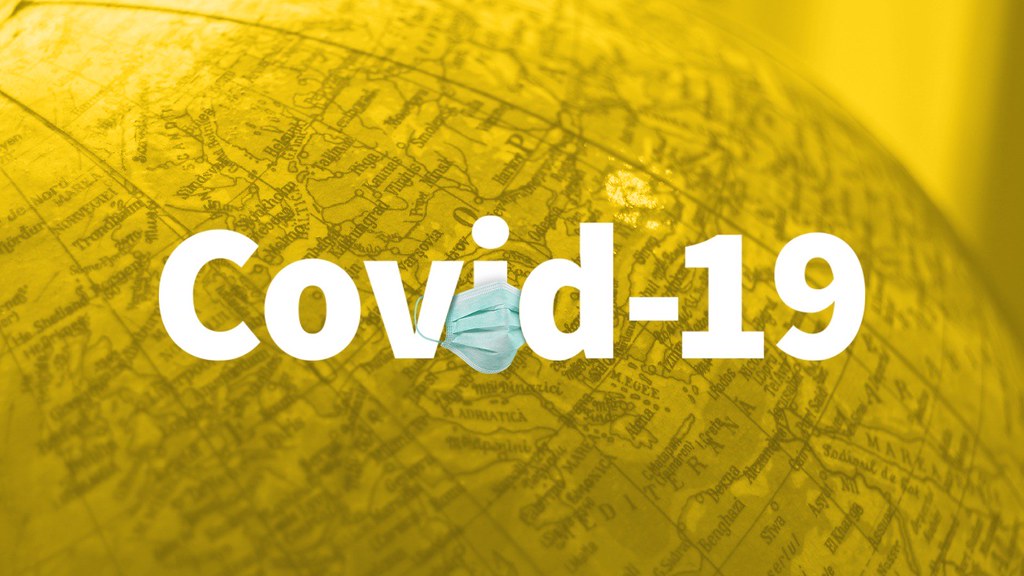Abu Dhabi's lightning-fast COVID-19 scanners raise privacy fears
He said the guard informed him that the phone camera was not only testing his electromagnetic emissions but also conducting a retina scan, which the guard said could tell him whether Firas was vaccinated or had had a recent PCR test. Firas suspected the scanner was linked to the digital identification system used by the United Arab Emirates (UAE) to provide residents access to their health records, visa applications and other official processes.

- Country:
- United Arab Emirates
Data rights groups are warning of privacy violations and risks to vulnerable communities after Abu Dhabi deployed scanners at border crossings, malls, and other public locations that could detect COVID-19 in seconds.
The Abu Dhabi health department says the EDE scanners can confirm a COVID-19 infection by measuring an individual's electromagnetic wave emissions, which it says are altered when the coronavirus is present, according to a June 27 statement by Abu Dhabi's Media Office. The new system has rights groups and even some residents worried.
"I went to a mall, and instead of a temperature scan, the (security guard) appeared to be taking a picture on a cellphone," said Firas, a consultant who has been living in Abu Dhabi for nine months, and asked to use a pseudonym. He said the guard informed him that the phone camera was not only testing his electromagnetic emissions but also conducting a retina scan, which the guard said could tell him whether Firas was vaccinated or had had a recent PCR test.
Firas suspected the scanner was linked to the digital identification system used by the United Arab Emirates (UAE) to provide residents access to their health records, visa applications, and other official processes. "That's the compromise you make when you come here. We signed a deal with this system in exchange for safety and security," he said.
A Media Office spokesperson told the Thomson Reuters Foundation that "the scanners are not linked to any identification system and no one is identified when scanned," adding that the system neither captures nor stores any personal data. Authorities in the UAE have relied heavily on artificial intelligence for years, including facial recognition technology.
In 2018, Dubai police launched a network of thousands of cameras – dubbed Oyoon, Arabic for "eyes" - to help them fight crime across the emirate. After the onset of the coronavirus pandemic, UAE police deployed smart helmets to scan the temperatures of up to 200 passersby a minute, while police in Dubai pledged to publish photos of anyone violating curfew restrictions without blurring their faces.
Matt Mahmoudi, a technology researcher at Amnesty International, called it "the surveillance-for-services tradeoff" often seen in smart cities. "That particular type of facial recognition (the kind rolled out in Abu Dhabi) is worrying because the technology of mass surveillance stands to violate people's right to privacy," he said over the phone.
The UAE is rated "not free" by the U.S.-based think tank Freedom House, which said state surveillance of the internet was widespread, infringed on users' right to privacy, and did not appear to be regulated by any "meaningful legal oversight." That "opaque legal framework" could specifically lead to the harassment of religious or sexual minorities in the largely conservative emirates, said Mohamad Najem, executive director of Lebanon-based digital rights group SMEX.
Khalid Ibrahim, executive director of the nonprofit Gulf Centre for Human Rights, also worried the technology could lead to more surveillance of migrant workers in the UAE, which the International Labour Organization says hosts the fifth-largest migrant population in the world. The rollout of Abu Dhabi's new scanners "was not transparent," Ibrahim said, demanding more details from the government on how the technology works, what role facial recognition plays in it, and if security forces would have access to the results.
"These are all important questions that the government's shrinking amount of transparency have not addressed," he said.
(This story has not been edited by Devdiscourse staff and is auto-generated from a syndicated feed.)
ALSO READ
Vantage Markets Gears Up for iFX Expo Dubai 2025: Innovation & Insights
Dubai Establishes Al Maktoum Archives to Preserve Heritage
Dubai Chosen as Neutral Ground for India-Pakistan Cricket Matches
Cricket Rivals Clash in Champions Trophy: Pakistan, Dubai to Host Thrilling Event
UPDATE 1-Cricket-India to play Champions Trophy matches in Dubai










